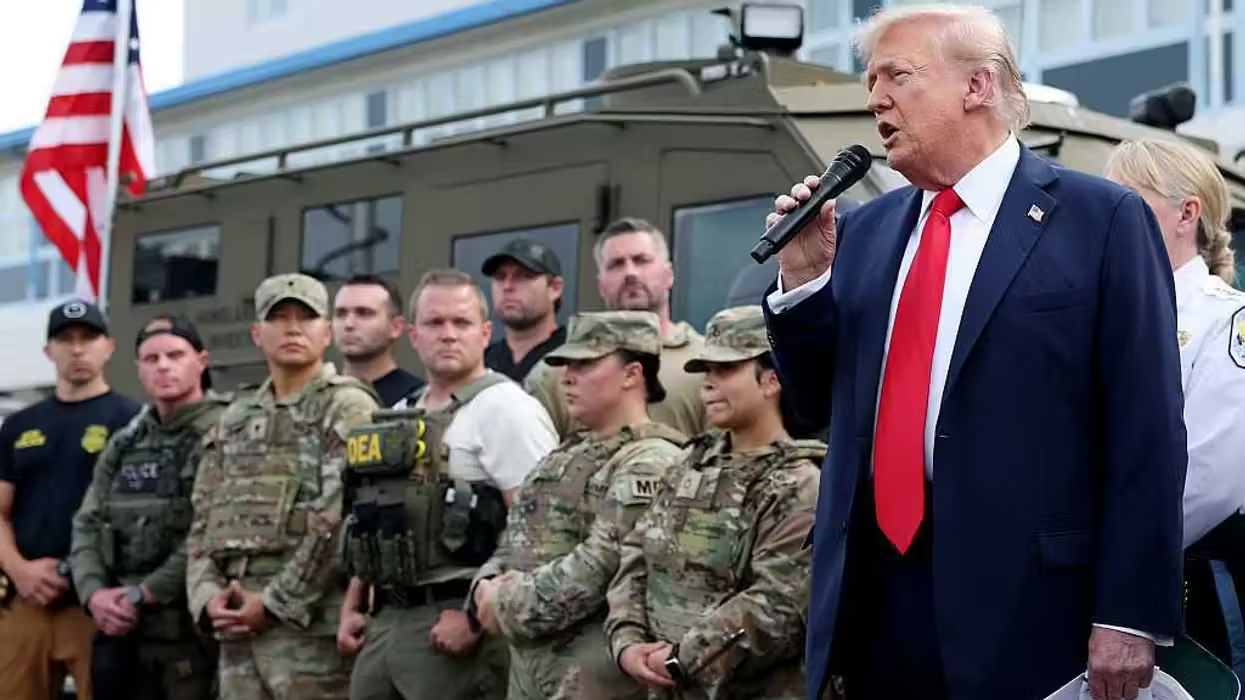
Photo by Anna Moneymaker/Getty Images

The president’s city deployments burn through cash and manpower while proven tools — police funding and local support — go underused.
Crime is bad. Violent crime is worse. That’s obvious. It’s not a partisan point. Most Democrats — I happen to be one of them — don’t cheer lawlessness. In fact, 68% of us say crime is a major problem in big cities. A few progressives have attacked police, but they sit far outside the mainstream. Most Democratic voters hold a higher opinion of law enforcement than of traditional liberal pillars like organized labor or public schools.
So if everyone agrees crime is bad, the real argument isn’t over morality — it’s over solutions.
We all agree crime is bad. The question is whether we fight it with empty theatrics or serious, sustained policing.
That’s where President Trump’s anti-crime efforts collapse. Talking tough doesn’t make streets safer. His approach wastes money, strains resources, and distracts from the hard work of policing.
Trump’s main crime-fighting move has been deploying the National Guard to large cities like Washington, D.C., and Los Angeles. Chicago, Portland, and San Francisco are also on the president’s list. The images look dramatic, but they don’t reduce crime.
The Posse Comitatus Act bars the president from using the military as a domestic police force, which makes it unclear whether Guardsmen can legally arrest suspects or patrol neighborhoods. Most Guardsmen don’t want to cross that line — and they aren’t trained to. In Washington, the Guard’s own report lists its activities: clearing trash, spreading mulch, and painting fences. Good work, yes — but not policing.
These deployments also carry a hefty price tag. The Los Angeles mission, involving 4,000 guardsmen and 700 Marines for less than two months, cost about $118 million. Washington’s ongoing deployment could exceed that. Long-term operations in cities like Memphis, Portland, and Chicago would drive the bills even higher.
And those aren’t the only costs. The Guard is already stretched thin. Disaster relief missions during brutal wildfire and hurricane seasons have drained manpower and equipment. Overseas deployments to Iraq and Afghanistan reduced recruitment and retention. If the president keeps sending Guardsmen into American cities, they may not be ready when the country faces a real disaster — or, heaven forbid, a war.
Instead of chasing headlines, Trump could invest in what actually reduces crime. His One Big Beautiful Bill Act offered funding only for local agencies that cooperate with federal immigration enforcement. It provided nothing to hire or retain more police or prosecutors — the people who actually solve crimes and clear backlogged cases.
The solution is straightforward: Redirect the hundreds of millions spent on National Guard deployments into state and local law enforcement. Departments nationwide face critical shortages. Chicago alone needs about 1,300 more officers.
RELATED: The city that chose crime and chaos over courage

History proves this works. Between the late 1960s and early 1990s, violent crime surged 371%. By 1991, the U.S. murder rate hit a historic peak. Then came the bipartisan 1994 Violent Crime and Law Enforcement Act. The law funded new prisons, domestic violence prevention programs, and — most importantly — about 84,000 additional police officers.
The result? Crime fell sharply. Violent crime has dropped roughly 50% since then. The law had flaws — cutting inmate access to higher education was one — but safer streets remain its chief legacy.
If President Trump truly wants to make America safer, he should stop staging photo ops and start funding proven methods. Deploying the National Guard is costly, risky, and legally questionable. Hiring cops, prosecutors, and judges works — and has worked for decades.
We all agree crime is bad. The question is whether we fight it with empty theatrics or serious, sustained policing. The answer should be as clear as the problem itself.
Neal Urwitz